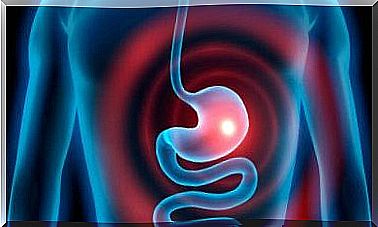Momnesia For New Moms

Momnesia in new mothers is a subject that many women complain about. But what is momnesia: a myth or a dramatic reality?
There is various research published in specialized publications that highlight the existence of changes in the brains of expectant mothers. These changes occur during pregnancy and are present even two years after birth. However, is it true that there is a problem called momnesia? Let’s find out together.
Momnesia in new mothers: an unpleasant reality
Many pregnant women claim that they are more forgetful than usual. There are certain situations that these women consider “common” during the second and third trimesters of pregnancy. These include, for example, losing your mobile phone or keys, forgetting to buy things, forgetting food on the fire, missing various appointments, and so on.
Okay, but that can happen to anyone, can’t it? How does this prove that certain memory losses occur due to the presence of pregnancy?
Well, the term momnesia was not coined by science, but is often mentioned in mothers’ circles.
Also, some doctors admit that some women may lose temporary memory during and after pregnancy. This could be related to the hormonal changes they are experiencing. Maybe they are just worried about everything related to their pregnancy and completely ignore the other issues, which they now consider minor.
Also, the exhaustion present in new mothers could be related to the postpartum forgetfulness.
Loss of gray matter in new mothers

According to a study from the University of Deakin, Australia, published in the Medical Journal of Australia, there is certainly a cognitive impairment during pregnancy. The researchers looked at 20 studies that compared the cognitive functions of 709 pregnant women with those of 521 non-pregnant women. They found that pregnant women had lower cognitive and memory functions than non-pregnant women.
In any case, it is necessary to carry out several studies before we can say that there is a scientific basis behind the concept of momnesia.
Momnesia in new mothers

Although more research is needed to prove or disprove the existence of momnesia, a 2010 study suggests that hormonal changes may be responsible for memory decline in new mothers.
These hormonal changes would help the mother adjust to the duty of keeping her baby alive and healthy. The brain selects the weakest connections and eliminates them to focus on what is really important: the emotional connection and its response to the baby’s needs.
What exactly is momnesia?

Data from another study support the hypothesis that pregnancy affects a woman’s ability to perform certain tasks, especially those related to spatial memory. Such forgetting may have something to do with high levels of prolactin and progesterone in the mother’s body.
Let’s look at some common situations that usually occur in women suffering from momnesia. These appear to be related to the degradation of spatial memory mentioned above:
- Mothers put a load of clothes in the washing machine and then forget to take out the laundry.
- I go to the supermarket and can’t remember what they wanted to buy.
- He gets up to do something and forgets why they went to that place.
How to deal with momnesia
- Make a list of activities and shopping and don’t leave home without it.
- Try to rest (even if it is not an easy task to perform when you have a child at home). Remember that your health is more important than cleaning your home. You also sleep when the baby is sleeping.
- Exercise to get back in shape.
- Eat a balanced diet. Your brain needs all the essential nutrients to function properly.
If so, then you probably suffer from momnesia! Science may not have approved the deadline yet because the data is inconclusive. However, momnesia is a reality for many women.
What do you think?









